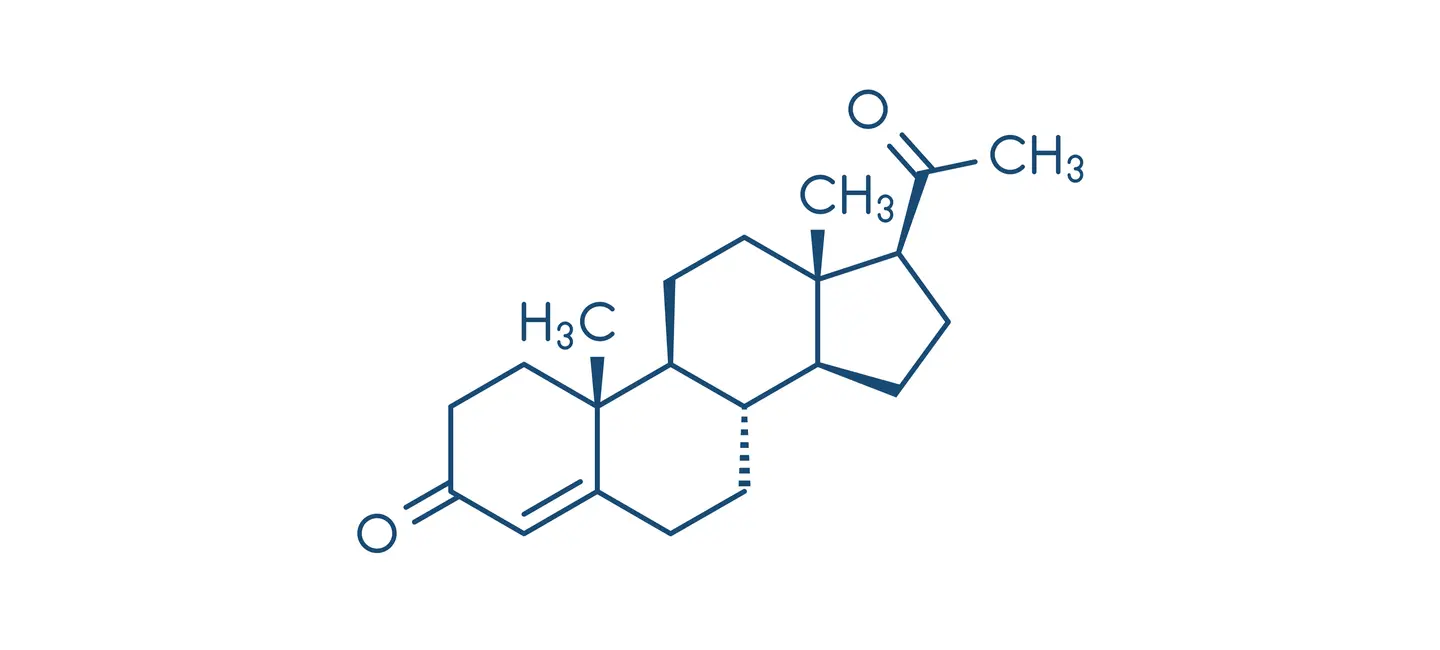
Progesterone is a hormone that occurs naturally in the body. It's involved in pregnancy and is produced mainly in the ovaries. It can also be made in a lab.
Progesterone levels can affect menstrual periods and menopausal symptoms. All progesterone products are made in a lab. The term "natural progesterone" refers to progesterone made from a chemical called diosgenin, which comes from wild yam or soy. The human body is not able to make progesterone from diosgenin, so eating wild yam or soy will not boost progesterone levels.
People use progesterone supplements and other non-prescription products for infertility, menopausal symptoms, and many other conditions, but there is no good scientific evidence to support any use.
Non-prescription progesterone products may contain more or less progesterone than indicated on the label. These products do not require FDA approval. Discuss the use of prescription progesterone products with a healthcare provider. Also, don't confuse progesterone with pregnenolone or wild yam. These are not the same.
Is It Effective?
There is interest in using non-prescription progesterone for a number of purposes, but there isn't enough reliable information to say whether it might be helpful.
Is it Safe?
When taken by mouth: Prescription progesterone products are likely safe when used appropriately under the care of a healthcare provider. There isn't enough reliable information to know if non-prescription progesterone products or supplements are safe. Stay on the safe side and avoid use.
When applied into the vagina: Prescription progesterone products are likely safe when used appropriately under the care of a healthcare provider. There isn't enough reliable information to know if non-prescription progesterone products are safe. Stay on the safe side and avoid use.
Special Precautions & Warnings:
Pregnancy: Prescription progesterone products are likely safe when applied into the vagina as part of infertility treatment or while pregnant to prevent preterm labor. But progesterone is likely unsafe when used during pregnancy for any other purpose. There isn't enough reliable information to know if non-prescription forms of progesterone are safe to use during pregnancy. Stay on the safe side and avoid use.
Breast-feeding: There isn't enough reliable information to know if progesterone is safe to use when breast-feeding. Stay on the safe side and avoid use.
Arterial disease: Don't use non-prescription forms of progesterone if you have arterial disease.
Breast cancer: Don't use non-prescription forms of progesterone if you have breast cancer or a history of breast cancer.
Depression: Don't use non-prescription forms of progesterone if you have depression.
Liver disease: Progesterone might make liver disease worse. Don't use non-prescription forms of progesterone if you have liver disease.
Porphyria: Progesterone might cause an attack of porphyria. Don't use non-prescription forms of progesterone if you have porphyria.
Vaginal bleeding: If you have undiagnosed vaginal bleeding, don't use non-prescription forms of progesterone.
Estrogens
Interaction Rating=Moderate Be cautious with this combination.
Progesterone and estrogen are both hormones. They are often taken together. Progesterone can decrease some of the side effects of estrogen. But progesterone might also decrease the beneficial effects of estrogen. Taking progesterone products along with estrogen might cause breast tenderness.
Paclitaxel (Abraxane, Onxol)
Interaction Rating=Minor Be watchful with this combination.
Injecting high-doses of progesterone by IV together with the drug paclitaxel might increase levels of paclitaxel in the blood. It's not clear if this is a concern with progesterone supplements or other non-prescription progesterone products. IV products can only be given by a healthcare provider.
There are no known interactions with herbs and supplements.
There are no known interactions with foods.
There isn't enough reliable information to know what an appropriate dose of non-prescription progesterone products might be. Non-prescription products may contain more or less progesterone than indicated on the label. These products do not require FDA approval.
Some progesterone products are available via prescription. Discuss the use of these products with a healthcare provider.
Bioidentical Progesterone, Corpus Luteum Hormone, Hormone de Grossesse, Hormone du Corps Jaune, Hormone Lutéale, Hormone Progestative, Luteal Hormone, Luteohormone, Lutine, Natural Progesterone, NSC-9704, Pregnancy Hormone, Pregnanedione, Prégnanedione, Progestational Hormone, Progesterona, Progestérone, Progesterone USP, Progesteronum, 4-Pregnene-3; 20-Dione.
Information on this website is for informational use only and is not intended to replace professional medical advice, diagnosis, or treatment. While evidence-based, it is not guaranteed to be error-free and is not intended to meet any particular user’s needs or requirements or to cover all possible uses, safety concerns, interactions, outcomes, or adverse effects. Always check with your doctor or other medical professional before making healthcare decisions (including taking any medication) and do not delay or disregard seeking medical advice or treatment based on any information displayed on this website.
© TRC Healthcare 2024. All rights reserved. Use and/or distribution is permitted only pursuant to a valid license or other permission from TRC Healthcare.
